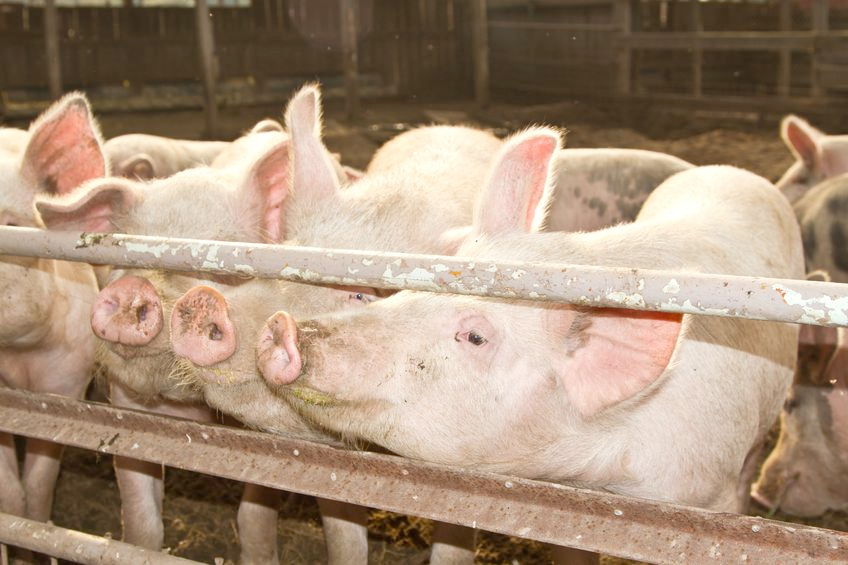Farmers warned as swine dysentery detected in Yorkshire

Farmers have been warned to be vigilant and maintain high biosecurity standards after another case of Swine Dysentery was detected on a farm in Yorkshire.
The case was identified by clinical signs and subsequently confirmed by laboratory tests on Monday.
It is the second case to be reported in Yorkshire in a few weeks.
The disease was identified on a rearing unit in North Yorkshire on August 5.
There was also a case in April 2016 but prior to that there had been no new cases for 18 months.
AHDB Pork is advising producers to increase vigilance for the development of clinical signs of disease within their herd.
Easily spread between farms
"It is important that a heightened level of biosecurity and monitoring for clinical signs are observed over the next few weeks," a spokesperson added.
Swine dysentery is a bacterial disease of pigs caused by Brachyspira hyodysenteriae. It results in diarrhoea and weight loss which severely limits productivity.
Pigs which survive infection require treatment, take longer to reach slaughter weight and the farm's productivity and competitiveness is compromised.
Infected pigs, their dung and anything contaminated with dung (vehicles, boots, slurry, equipment) can easily spread infection between farms.
The disease is a particular threat to farms selling pigs for breeding; if these become infected their international and UK trade is devastated.
Resistance to the limited range of treatments for swine dysentery is increasing.
There have been cases where the swine dysentery organism is resistant to all available treatments and complete depopulation has been the only way to control disease on these farms and prevent spread.
An infected pig farm threatens others within an area due to potential local spread and also threatens farms in other regions due to spread on vehicles or by pig movements.








